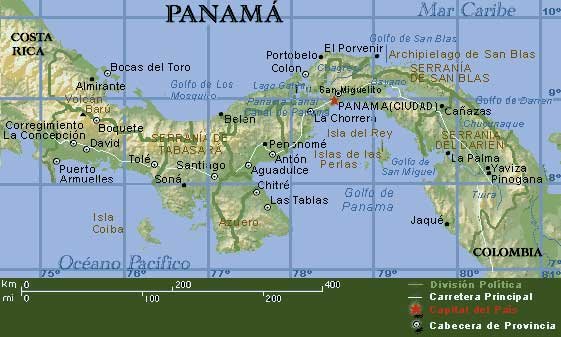A couple of months ago, two volunteers in our region, Teri and Cassie, used the same funding source we used for our
Health Fair to support the Theatre department at the Santiago branch of the Universidad Panama in staging
Los Monologos de la Vagina (The Vagaina Monologues). In addition to the play, which was attended by over 300 people on its one night showing, they organized a day of
charlas (discussions) for about 30 community members from PCVs' communities. The charlas, on AIDS and domestic violence issues, were led by Panamanians from Mides (Ministry of Social Development) and APLAFA (sort of like a Planned Parenthood maybe?) who are very enthusiastic about helping stop the spread of AIDS and ending domestic violence.
Five women went from our community to both the day of charlas and the play, and then spent the night in a hotel in Santiago. For all of them, it was their first time going to the theatre, and may have been their first night in a hotel. They certainly enjoyed themselves both at the play and with the night away (even if their rooms didn't have TV or A/C, they did have lights and a shower and bathroom).

(Maria Ester, Marlina, Ilsa, Yadira, and Magda, at Los Monologos de la Vagina, as evidenced by the playbill in Maria Ester's hand)
It took a lot of walking and talking to get those five (it was supposed to be six). Initially, we chatted with Cecilia and Maria Luisa (who would have loved to have gone, but felt that others would find greater benefit from attending) about who to ask. They recommended women they thought would be willing to talk about what they heard and/or who faced domestic violence. They selected women from all parts of the island, so that each community would have someone who had experienced the charlas and show. Then I walked around the island, visiting just about every house to deliver an open invitation to all the women on the island to the show, and a special invitation to the selected women for the full day and the night in the hotel.
I received a lot of interest (the name alone makes people take notice), and several of the women immediately said yes they would accept. There were some logistical questions (at one point, I thought I might be babysitting a two-and-a-half year-old all day, but evidently she stayed with a friend or relative) about the event, but with April in Panama City, I think any trickier questions about the topic weren't addressed to me. But when I returned a few days later to confirm their attendance, two backed out. It may have been due to child care concerns, or fears of spending a night out in the city, or it might have been a disapproving husband. Whatever the reason, I ran around to talk with our backups (two kids got colds and moms were unwilling to leave them with relatives; so they said) and called Maria Luisa and Cecilia. I also coordinated with Israel, the corregidor, to use the community boat to take us to port. As we left at dawn that morning to go around the island and pick everyone up, I wondered how many would actually be ready and going. I was pleasantly surprised.
We arrived at port early enough that we didn't need to go straight to the charlas, so I gave each of them their bus fare and told them we'd meet at the terminal at 8:45 to go to the APLAFA offices. When I walked up at 8:40, expecting to wait for them, all five were there, wondering why I was late! Then, instead of taking a taxi, Marlina said they'd walk, since she knew where it was and it wasn't far. I am constantly pleasantly surprised.
They were a bit surprised when I introduced them to Cassie, Teri, and the others leading the charlas and then started to leave; clearly they hadn't anticipated being left "alone". But when I came back at the end of the day, they were a happily integrated part of the class. The only other confusion came when we checked into the hotel. In addition to their three rooms, through the grant, I had made a separate reservation for April and I. But I don't think they realized that, and they were concerned about which one of them was going to have to share a room with me (five of them plus me, with three rooms, meant two people per room). They laughed once they realized the only question was which of them had to sleep alone.
Everyone had a few hours to get made up to go out, and then we headed to the theatre. When the play started, they initially checked with us for our reactions, but soon they were absorbed in laughing along with the rest of the crowd. They clearly had an exciting night, and from conversations with others on the island, they've been sharing their experiences and the fun. Thank you to Cassie and Teri for putting so much effort into making both the day and the play happen.
One other photo from that night:
(Us with the women from the island at the theatre; I don't usually see it when just chatting with them, but every so often, something points out to me that I am a bit taller than most of the folks here.)











